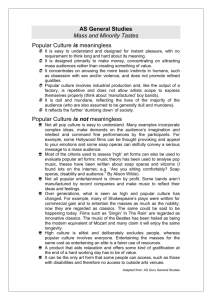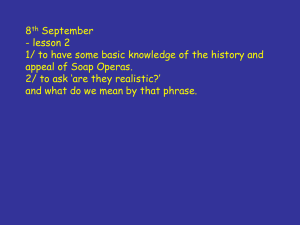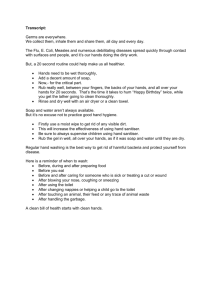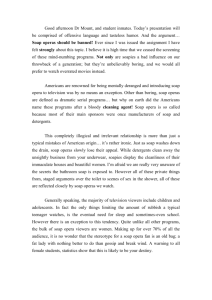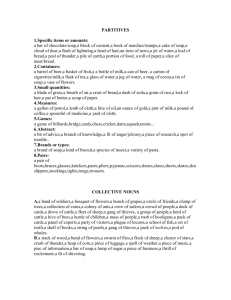Sample Informative Speech Outline (C+)
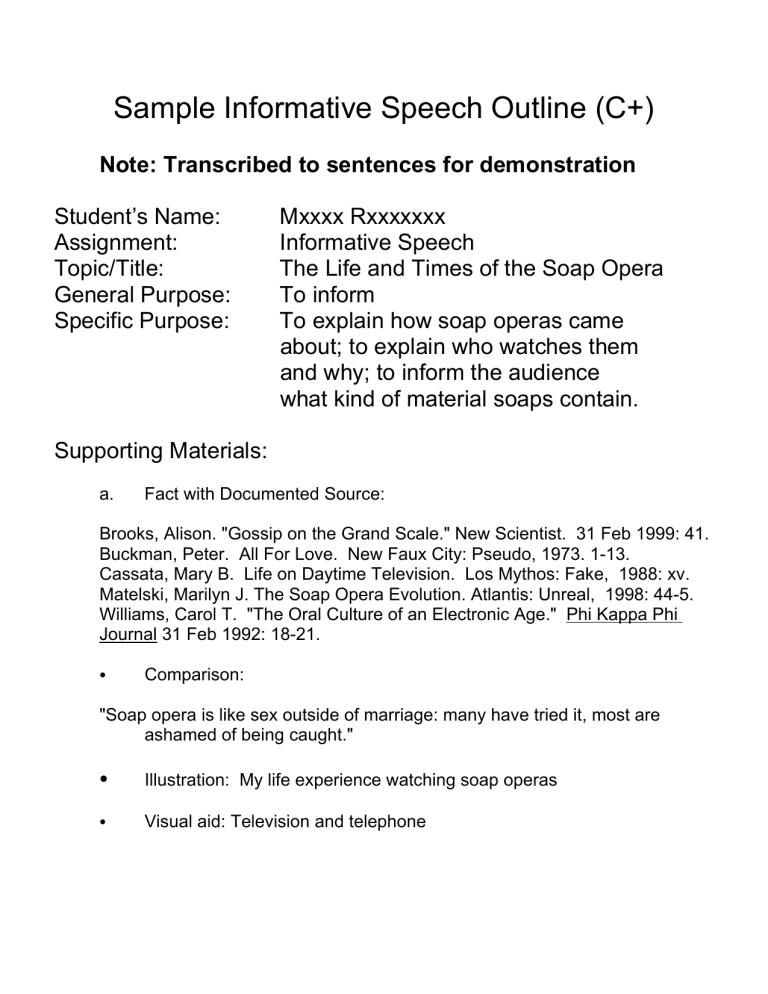
Sample Informative Speech Outline (C+)
Note: Transcribed to sentences for demonstration
Student’s Name:
Assignment:
Topic/Title:
General Purpose:
Specific Purpose:
Mxxxx Rxxxxxxx
Informative Speech
The Life and Times of the Soap Opera
To inform
To explain how soap operas came about; to explain who watches them and why; to inform the audience what kind of material soaps contain.
Supporting Materials: a.
Fact with Documented Source:
Brooks, Alison. "Gossip on the Grand Scale." New Scientist. 31 Feb 1999: 41.
Buckman, Peter. All For Love. New Faux City: Pseudo, 1973. 1-13.
Cassata, Mary B. Life on Daytime Television. Los Mythos: Fake, 1988: xv.
Matelski, Marilyn J. The Soap Opera Evolution. Atlantis: Unreal, 1998: 44-5.
Williams, Carol T. "The Oral Culture of an Electronic Age." Phi Kappa Phi
Journal 31 Feb 1992: 18-21.
C Comparison:
"Soap opera is like sex outside of marriage: many have tried it, most are ashamed of being caught."
C
C
Illustration: My life experience watching soap operas
Visual aid: Television and telephone
Introduction
I.
Attention-Getting device:
(I will turn off the television and call my friend.) "Girl, can you believe that?! I know! No, it's his evil twin! I'm serious!
She's having his baby! No, not Shane, Jack! I know, I can't believe Bill got shot either! I thought it was John who was suppose to die. Well, I'm sure he'll be alive again in a month or so! Girl, I've got to call Rob and see if he saw it, but same time tomorrow, okay!"
Sound familiar? Now is the time for "Confessions of a Soap
Opera Junkie!" I know there are more of you out there than want to admit! So it's time to 'fess up!
II Preview:
Men, women, and even children of all ages have made daytime TV, or soap operas, where the true money is in television, simply because they cannot resist the incredible stories that soaps being to us each day.
Body
I. Soap operas began during 1930s as radio serials in America.
A. For the first ten years, the BBC offered only 20% entertainment and 80% talk, classical music, and serious drama on the radio.
a.
Most listeners wanted more entertainment.
b.
The director of the BBC, John Reith, felt that he needed to serve the "public interest" and that soap operas were not only not in the public interest but were tasteless.
B. John Reith soon was gone, and the people got what they wanted -- more entertainment.
C. No one really knows who came up with the phrase "soap opera," but there are several reasons why this term was created.
1. The term "soap" came from the soap manufacurers
Proctor & Gamble, who sponsored nearly 20 radio serials in America around the 1930s.
2. The term "opera" probably came from the opera-like melodrama and romance in the radio serials.
II As I mentioned earlier, people of every age, race, sex, and nationality watch soap operas.
A. Most people won't admit to watching them because, as
Peter Buckman, author of All For Love, said, "Soap opera is like sex outside of the marriage: many have tried it, but most are ashamed of being caught."
B. Most soap opera viewers start watching as children with their families.
1.
I remember watching Days of Our Lives and
Another World with my grandmother during the summers and on holidays when I was a little girl, and I still watch Days of Our Lives to this day.
2. Many people that I have talked to started watching
soap operas when they were children
C. I have read that people in the United Kingdom would probably prefer to gossip about characters in the soaps than about their own acquaintances.
D. A poll in the 1980s showed the different types of people that watch the different soap operas.
1.
Most of those watching All My Children include college-aged men and women and those ages
21-40.
2.
Most of those watching Days of Our Lives include male college students and females ages 41-60.
3.
General Hospital attracts viewers from ages 11 to
60, or all age groups.
4.
One Life to Live is very popular among men ages 18 to 35.
III. Of course, there are several criticisms of soap operas..
A. They are criticized for focusing too much on female audiences.
1. In the poll that I mentioned earlier, men were included in most of those who view soap operas regularly.
2. The myth that soap operas are just for women faded in the 1980s as the male audiences "came out" of their shells.
B.
They are accused of condoning premarital sex, unprotected sex, and adultery.
1.
A poll was done by Beth Olson on such matters and printed in the Mass Communication Review of 1994.
2.
The hypotheses tested, such as that soap opera viewers tend to ignore the need for contraception,
indicate less need for prevention of STD's, believe that engaging in sexual behavior is not risky, and are more likely to commit adultery, could not be strongly supported.
Conclusion:
I.
Summary
:
The true fact of the matter is that the addicted soap opera viewers of the world watch simply for the entertainment. We don't take it seriously; it's just a break from the norm. For an hour everyday we can get lost in those fairy-tale, suspenseful lives of the soap characters and we can have a permanent topic of conversation and gossip! They have been proven not to affect the way we feel about sexual matters and to attract all types of viewers. So... what's the big deal? We can start a support group if necessary!
II. Concluding device:
So come out of the closet. There's nothing wrong with watching soap operas. In fact, it might even be good for you.
There's got to be some good reason why daytime TV is more often viewed than primetime. I think that the reason soap operas are so popular can be summed up in these few words that Carol Williams used to describe them: "amorphous, unset, unsettled from the status quo, unsettling, personal, without canonical meaning, good and bad at once,
unfinished, and always open."
